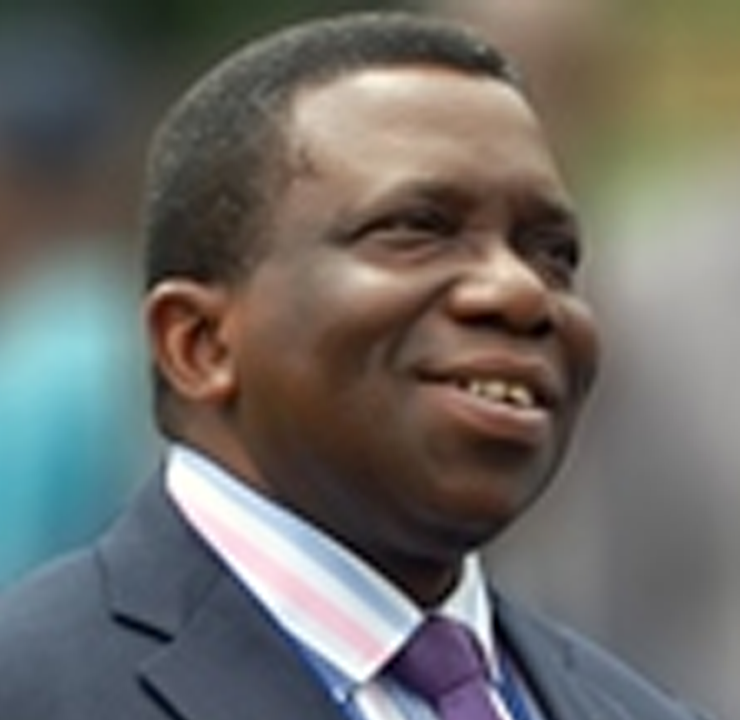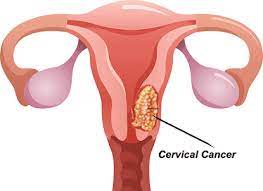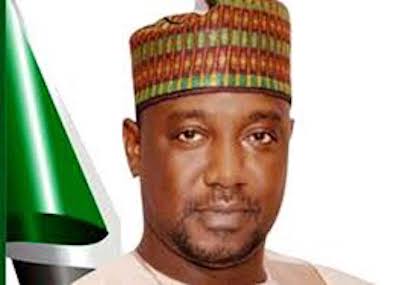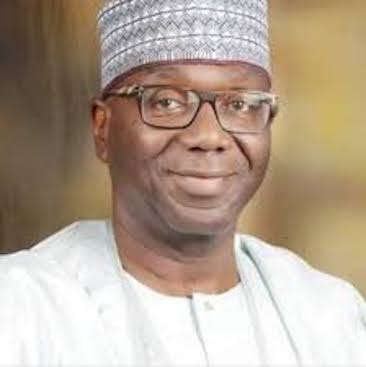Health
Bleeding After Intercourse May be Sign of Cervical Cancer— Prof. Adewole

Prof. Isaac Adewole, a former minister of health, Nigeria, says many people are unaware that contact bleeding especially during bleeding or just after sexual intercourse can be early sign of cervical cancer.
Adewole, Co-Founder, African Cancer Coalition, told in Lagos on Thursday in a telephone interview that cervical cancer was preventable and treatable , if presented and diagnosed early.
According to the World Health Organisation (WHO) cervical cancer is still the second most common cancer among women in Nigeria and the fourth most common cancer among women globally.
It is the most common among women ages 15-44 years, claiming 7,900 women’s lives each year from the 12,000 cases reported in Nigeria.
Adewole said: “The challenge in Nigeria, just like the challenge in Africa and many developing countries, is that a lot of people are largely unaware of the situation with cervical cancer.
“Therefore, when they present to the hospitals, they present largely in advanced stage, for quite a number of reasons
“One, they are not aware of the symptoms of early stages which include contact bleeding especially during bleeding or just after sexual intercourse.
“What most women with such incidents usually do is to stay away from their men believing that the bleeding was caused by the man.
“They probably thought it was due to trauma, and some form of injury. And interestingly, when they do that, they bleeding will stop but the disease will continue to progress.
“So, by the time they will have a resurgence of the disease in terms of symptoms, the disease will be far advanced.’’
Adewole, a Professor at University of Ibadan and Northwestern University, said: “So, you have these women moving from one care giver to the other and healing homes to another.
“By the time they finally present at the final destination, maybe a Teaching Hospital, or a private facility manned by a Specialist, the disease would be advanced, and at that stage, it is beyond cure.’’
The former minister of health said about 80 per cent of cases of cervical cancer presented were in advanced stages, and that many healthcare practitioners also missed some of these early signs/stages of cervical cancer.
Adewole told that the trajectory of late presentations could be moved to either no presentation at all or early presentation.
He said that according to the WHO, symptoms of early-stage cervical cancer might include: “Irregular blood spotting or light bleeding between periods in women of reproductive age.
“Postmenopausal spotting or bleeding, bleeding after sexual intercourse; and increased vaginal discharge, sometimes foul smelling.’’
On the causes of cervical cancer, the WHO says, two Human Papilloma Virus (HPV) types (16 and 18) were responsible for nearly 50 per cent of high grade cervical pre-cancers
HPV is mainly transmitted through sexual contact and most people were infected with HPV shortly after the onset of sexual activity.
No fewer than 90 per cent of them cleared the infection eventually and Cervical cancer could be cured if diagnosed at an early stage and treated promptly.
Proffering some solutions, Adewole said a new research on the efficacy of a one-dose HPV vaccine regimen was among several of the factors that could prevent and bring the world closer to eliminating cervical cancer.
He urged increased sensitisation on the disease by governments and stakeholders.
He encouraged that HPV vaccine be given to young girls from ages nine to 14 to prevent them from having the cancer.
He also advised women with symptoms to present early at health facilities for diagnosis.
NAN reports that Adewole is among the 12 leading health experts from around the world moving the powerful call to action in the fight against cervical cancer through The Global Declaration to Eliminate Cervical Cancer.
The declaration was formally launched at the World Health Assembly in Geneva on May 22, 2023, with signatures from more than 1200 global health leaders and advocates representing over 100 countries.
Top among them included former Prime Minister of New Zealand Jacinda Ardern, CEO of Amref Health Africa, Githinji Gitahi; President of the International Federation of Obstetrics and Gynecology (FIGO) Jeanne Conry, and President-elect of the International Pediatric Association Naveen Thacker. (NAN)
Health
WHO Approves 2 New Vaccines to Protect Infants From RSV

The World Health Organization (WHO), on Friday, issued recommendations for two new immunisation tools to protect infants from Respiratory Syncytial Virus (RSV)They included a maternal vaccine, administered to pregnant women in their third trimester to protect their newborns.The other was a long-acting antibody injection for infants, which begins to protect within a week of administration and lasts for at least five months.
According to WHO, RSV is the leading cause of acute lower respiratory infections in children globally. It causes around 100,000 deaths and 3.6 million hospitalisations each year among children under the age of five, while infants under six months are most at risk.Alarmingly, 97 per cent of these deaths occur in low and middle-income countries, according to WHO.Although RSV can infect people of all ages, “it is especially harmful to infants, particularly those born prematurely,” a WHO official, Kate O’Brien, said.O’Brien added that around half of all RSV-related deaths occurred in babies younger than six months.Considering the global burden of severe RSV illness in infants, WHO recommended that all countries adopt either the maternal vaccine or the antibody injection as part of their national immunisation strategies.“These RSV immunisation products can transform the fight against severe RSV disease, dramatically reduce hospitalisations and deaths, and ultimately save many infant lives worldwide,” O’Brien said. (NAN)Health
UNICEF Promotes Menstrual Hygiene for Girls

The United Nations Children’s Fund (UNICEF) has encouraged girls to embrace menstruation with pride and confidence, recognizing themselves as vital contributors to humanity’s sustainability.
Mrs Aderonke Akinwole, Social and Behavioural Change Specialist at UNICEF, gave the advice during an event on Wednesday organised with the Nigeria Girls’ Guild and Lagos State Primary Health Care Board.
The event was held to commemorate Menstrual Hygiene Day (MHDay) and was attended by students from both public and private schools across Lagos.
With the theme ‘Together for a Period Friendly World,’ the event aimed to raise awareness and promote dignity in menstrual hygiene.
“When a girl begins menstruation, it should be celebrated. It signifies her transition into womanhood and her ability to sustain life.
“They should be proud, and seek accurate, helpful information to remain safe, clean, and healthy during their period,” Akinwole said.
She emphasised that girls must not feel ashamed, as menstruation is a natural part of womanhood and a symbol of female dignity.
She urged the state government to increase sensitisation efforts and include menstrual hygiene education in school curricula, religious settings, and community platforms.
Akinwole also warned against stigmatisation, especially from boys, and called for boys to be educated to respect menstruation as part of girls’ lives.
“Girls should understand the menstrual cycle even before it starts. This should be part of health education in schools, churches, mosques, and communities,” she said.
She explained that girls need awareness on menstrual hygiene management and should know how to prepare for their periods in a healthy, informed way.
Mrs Honfor Adesola, Director of Education at Lagos State Primary Education Board, commended UNICEF’s support in promoting menstrual hygiene and addressing issues affecting girls.
Adesola highlighted that maintaining menstrual hygiene is vital in preventing infections and ensuring comfort throughout the menstrual cycle.
She noted that the event also helped to raise awareness about the Human Papillomavirus (HPV) vaccine available free in health centres across Lagos.
“We’re here to mark MHDay and to engage girls on HPV awareness. The state government has provided the vaccine, and sensitisation must continue,” she explained.
She encouraged girls to discuss the HPV vaccine with their parents to gain consent, ensuring protection against cervical cancer.
“The vaccine is safe, effective, and accessible in state facilities for girls aged nine to fourteen, but many have not yet been vaccinated,” she added.
Meanwhile, Ethagah Divine, Head Girl of New Estate Baptist Secondary School, Surulere, called on NGOs to provide sanitary pads for girls.
She urged more campaigns and rallies to distribute free menstrual products, like UNICEF did, to promote hygiene and dignity during menstruation.
Miss Emmanuella Azubuike, a student of the same school, expressed gratitude to UNICEF and partners for the impactful menstrual hygiene awareness event.
“This programme has expanded my knowledge on menstrual hygiene and HPV. More NGOs should support these campaigns to reach and educate more young girls,” she said. (NAN)
Health
Soludo’s Wife Establishes Pad Banks in 300 schools

Wife of Anambra State Governor, Dr Nonye Soludo, says she has established pad banks in 300 schools across the state as part of her pet project, Healthy Living Initiative.
Mrs Soludo disclosed this in a message in Awka on Wednesday to mark the 2025 World Menstrual Hygiene Day.
She said that the initiative was her own approach to helping school girls whose academic focus could be affected during menstruation and related emergencies.
Mrs Soludo stressed the need to provide immediate solutions for menstrual emergencies in schools, so that girls caught off guard could confidently rely on the pad banks.
“Official data say that an estimated 37 million women and girls in Nigeria are unable to afford sanitary pads and only rely on unhygienic alternatives.
“The data reinforce World Health Organisation and United Nations Children’s Fund finding that poor water, sanitation and hygiene infrastructure hinders safe and dignified menstruation for women and girls.
“Other data say that only two in five schools globally offer menstrual health education and just one in three have bins for menstrual waste.
“These figures challenge key stakeholders to find practical solutions to address the root of the problem while the situation remains reversible.”
She called for intensified campaign to reach more women and girls currently facing menstrual hygiene challenges.
The governor’s wife noted that the growing number of women, especially girls, in urgent need of menstrual support makes it essential for stakeholders to re-strategise their campaign approach.
According to her, menstrual health remains the right of every girl-child.
She encouraged girls at the designated schools participating in the pad bank project to use the supplies with confidence.
Mrs Soludo assured them that her NGO was fully committed to restocking any of the pad banks that run out of sanitary products.(NAN)




















